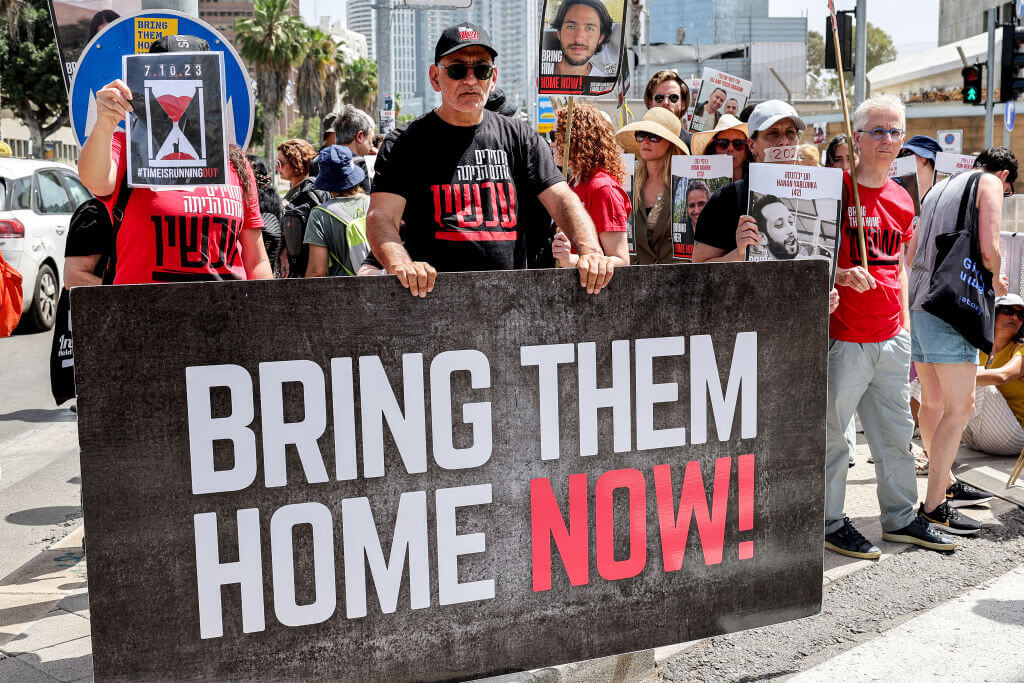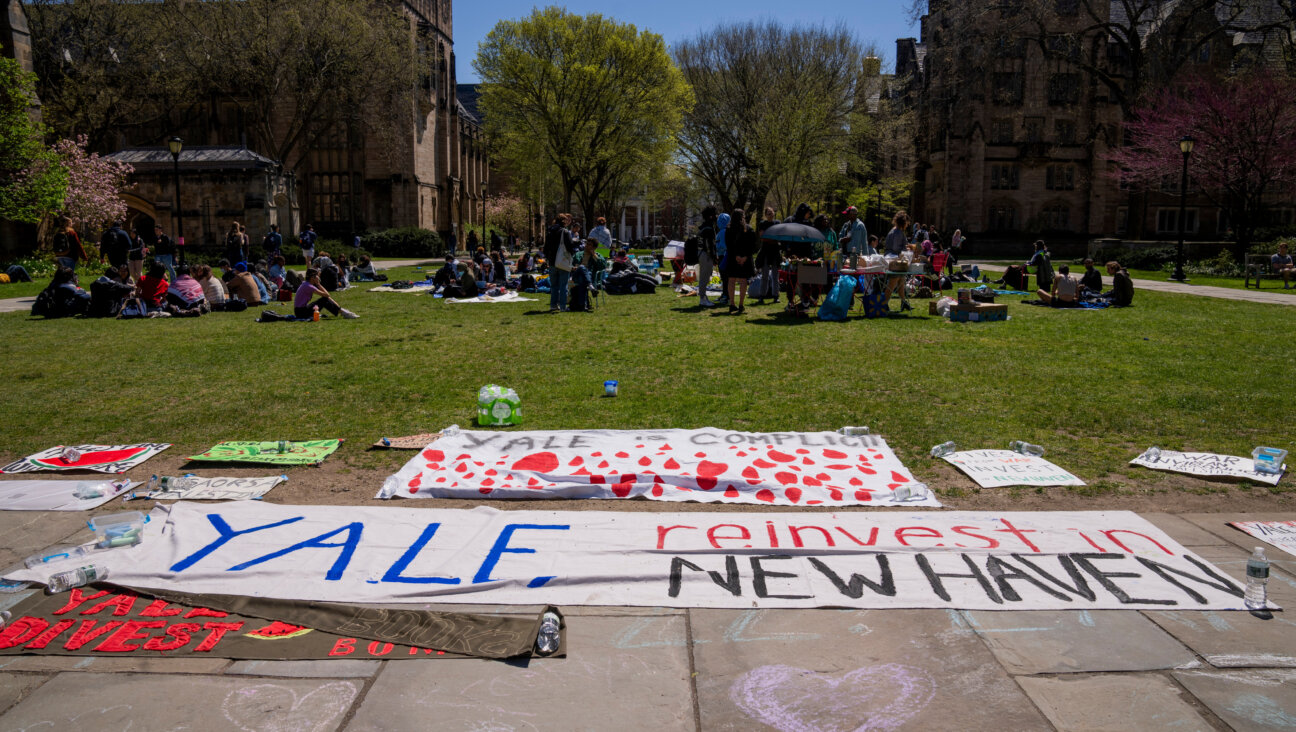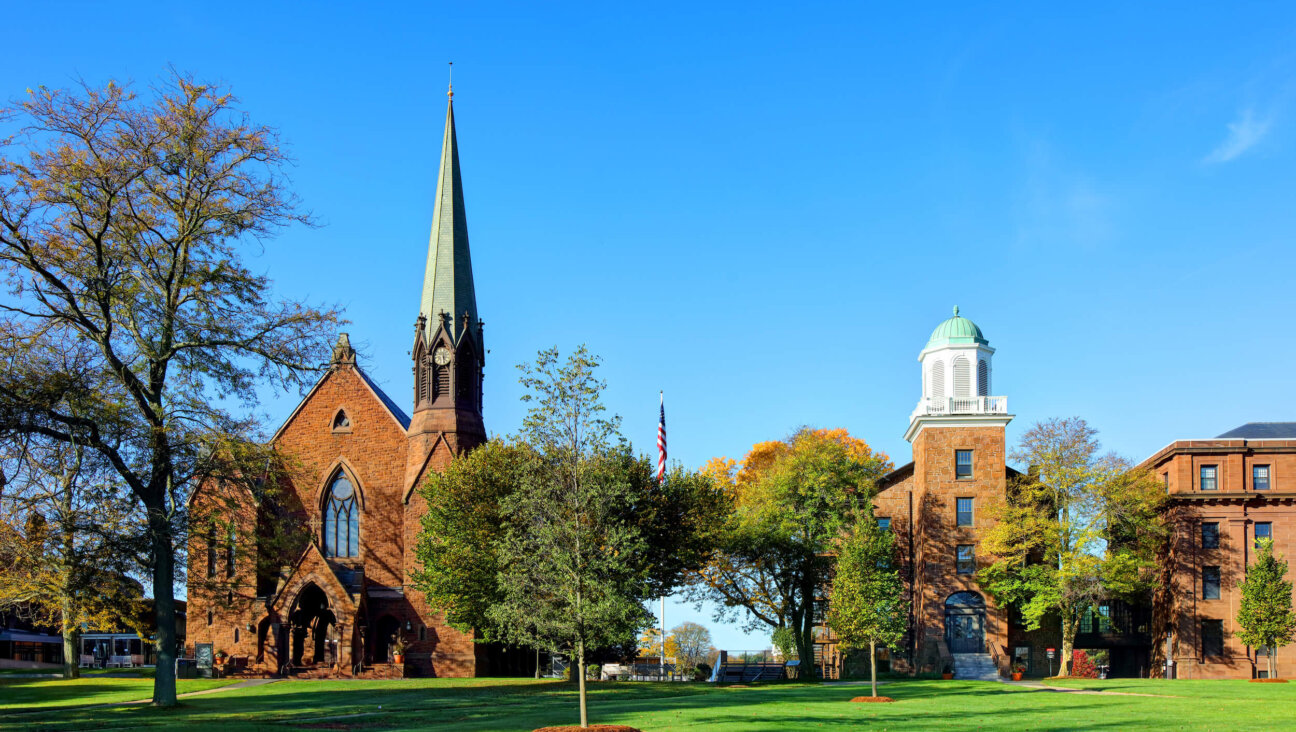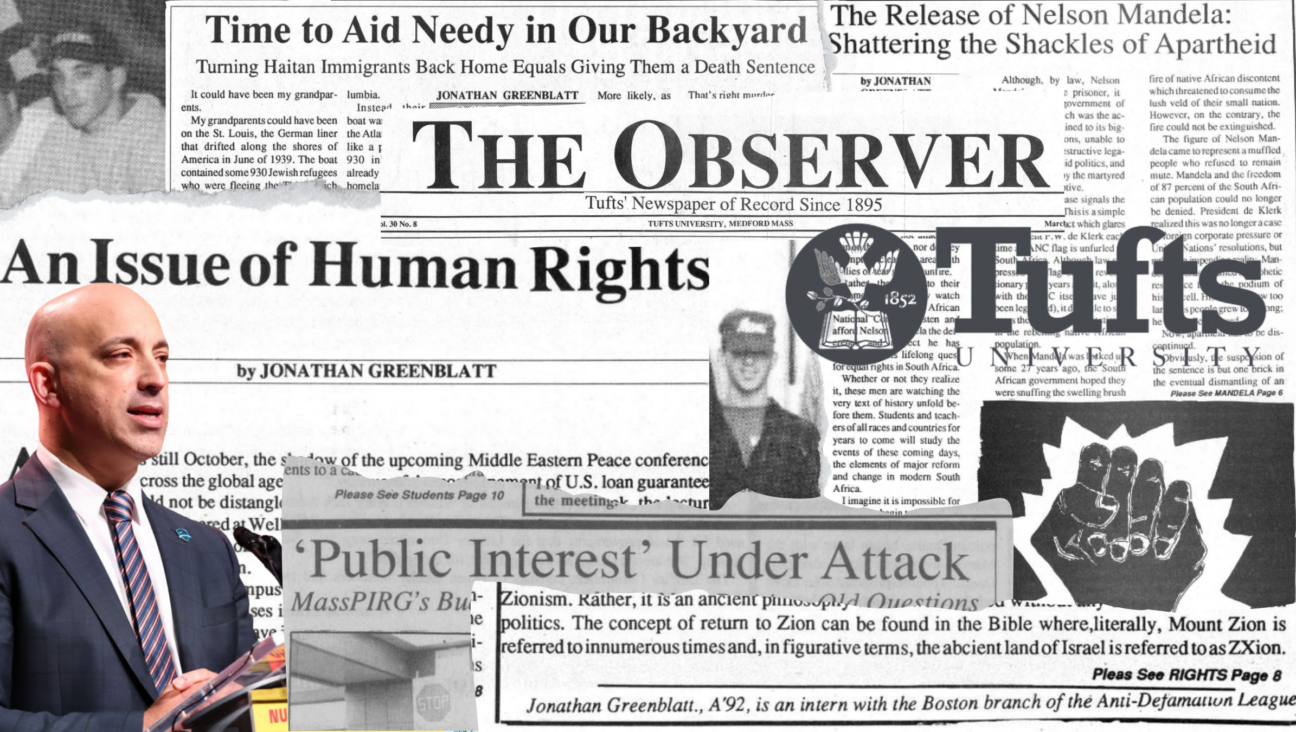American Jewish University completes deal to sell its Los Angeles campus to nearby Jewish school
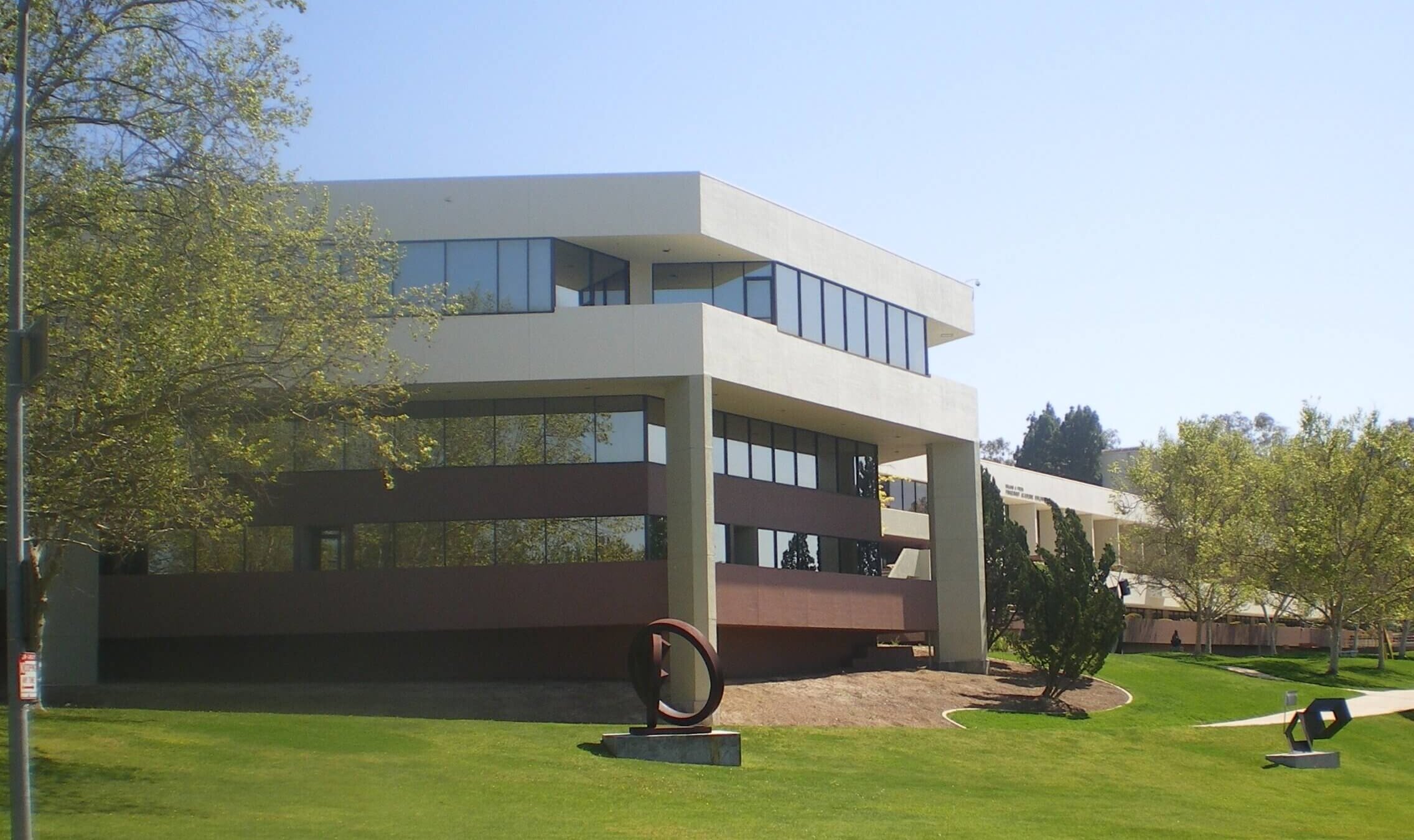
American Jewish University’s Familian Campus, a 22-acre property that has housed the Ziegler School of Rabbinical Studies since 1996. The school listed the property in 2022. Photo by Cbl62/Wikicommons
(JTA) — American Jewish University in Los Angeles completed the sale of its main campus to Milken Community School, a nondenominational Jewish school located only a few hundred feet away, the two institutions announced Wednesday.
The announcement puts to rest concerns that the 22-acre hilltop property would go to an entity outside of the Los Angeles Jewish community, whose philanthropic donations allowed the construction of classrooms, a synagogue, mikveh and other facilities on the site over the past seven decades.
“Today marks a significant milestone as American Jewish University and Milken Community School take a major step to strengthen our Jewish community for future generations,” leaders of the two institutions wrote in a joint announcement Wednesday.
The two sides did not disclose the financial terms of the deal but it includes only the Familian Campus in Bel Air, and not the Brandeis-Bardin Institute in Simi Valley, which will remain the property of AJU.
AJU, formed in 2007 with the merger of the University of Judaism and the Brandeis-Bardin Institute camping and conference center, announced in February 2022 that it would sell “all or part” of its campus to help pay for more academic offerings and community programs as it turned increasingly toward digital learning.
AJU had originally accepted a bid for the property from a Swiss language education company. The proposed deal valued the campus at $65 million, according to the Forward. But the sale fell apart after nearby residents voiced their opposition to plans for the campus presented by the company, EF Education First. In a letter to the Los Angeles Planning Commission, EF Education First, said it decided to back out of the deal because of the “level of fear and bias” it encountered from neighborhood residents.
In the aftermath, local Jewish leaders renewed calls to find a Jewish institutional buyer for the campus, where generations of Conservative rabbis have been ordained from the Ziegler School of Rabbinic Studies and countless others have participated in various undergraduate and graduate programs. Also of concern were the fate of AJU’s mikveh, the only non-Orthodox ritual bath in the region, and a major library collection.
Milken, which previously submitted a losing bid for the campus in 2022, remained interested in buying the property. With 800 students, Milken is one of the largest Jewish high and middle schools in the country. Hopes to grow Milken required it to expand beyond its six-and-a-half acre footprint.
The sale delivers to Milken more classroom space, but also a football field and more spaces to hold large gatherings.
AJU will continue to maintain its administrative office on site and run the mikveh for three to five years, according to the joint announcement, which did not specify what would happen to the campus’ library collection. The Ziegler rabbinic school will relocate to an area near Pico-Robertson, a neighborhood in the heart of Jewish Los Angeles.
With the proceeds from the sale, AJU will be able to shore up its finances, which have struggled as enrollment in its degree-granting programs declined, and double down on its recent investments in online learning and engagement. Programs such as its introduction to Judaism for people considering converting to Judaism have soared in popularity since the pandemic.
”The new resources will promote new dynamism at a time when many decry the stagnation of the Jewish world,” Wednesday’s announcement said.
This article originally appeared on JTA.org.

I hope you appreciated this article. Before you go, I’d like to ask you to please support the Forward’s award-winning journalism this Passover.
In this age of misinformation, our work is needed like never before. We report on the news that matters most to American Jews, driven by truth, not ideology.
At a time when newsrooms are closing or cutting back, the Forward has removed its paywall. That means for the first time in our 126-year history, Forward journalism is free to everyone, everywhere. With an ongoing war, rising antisemitism, and a flood of disinformation that may affect the upcoming election, we believe that free and open access to Jewish journalism is imperative.
Readers like you make it all possible. Right now, we’re in the middle of our Passover Pledge Drive and we still need 300 people to step up and make a gift to sustain our trustworthy, independent journalism.
Make a gift of any size and become a Forward member today. You’ll support our mission to tell the American Jewish story fully and fairly.
— Rachel Fishman Feddersen, Publisher and CEO
Join our mission to tell the Jewish story fully and fairly.
Only 300 more gifts needed by April 30







